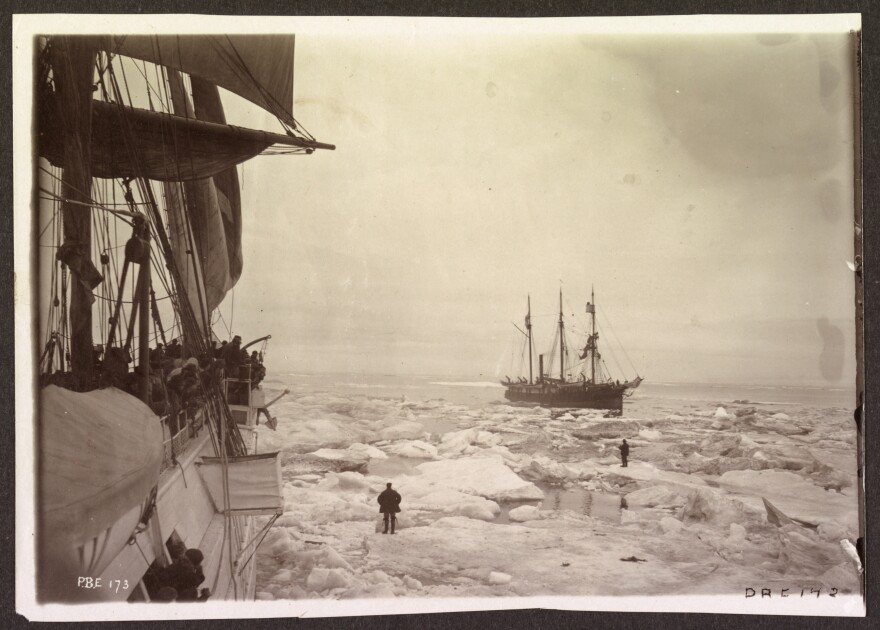University of Washington scientists hope to better forecast climate change by harvesting weather data from 19th-century whaling boats.
For centuries, sailors have been making detailed observations about the weather, and that information has sat archived in yellowing log books. But now research scientist Kevin Wood of the UW and NOAA’s Joint Institute for the Study of the Atmosphere and the Ocean, says scientists can put that historical data to use.
“We now have giant supercomputers that can take old historical data and re-crunch it as if it was today, basically generating a fresh forecast every six hours from 1850 to now,” Wood said.
That old data helps sharpen up computer models of the climate, clarifying the past and therefore improving the accuracy of future projections. The “Old Weather” project has already collected a great deal from Coast Guard ships, and now they are opening up hundreds of log books from Arctic whaling ships.
“There were many more whalers at any given moments than there were Coast Guard ships or revenue cutters in the Arctic,” Wood said.
They logs contain valuable information about sea ice, in particular – shedding light on the rapid disappearance of the present-day ice.
And while supercomputers might help crunch the numbers, actually picking out the data from a page handwritten in Victorian sea jargon is beyond the reach of machines. That is why “Old Weather” is soliciting help from citizen scientists.
Volunteers view and catalog digital images of pages from the ships’ logs, noting dates and relevant details. Already, Wood says more than 22,000 people have contributed, processing more than 8 million weather records.







